The Horizons team features many influential Twitter users. This curates a wealth of insights, knowledge, and information about transformation in health and care from other thought leaders across the world. (Tip: to read an article or watch a video mentioned in a tweet, click on the red text. To view the original tweet, click on the image).
Future Midwifery
On Wednesday 23rd January, the Transforming Perceptions of Midwifery campaign was launched. There were so many fantastic conversations and ideas about how we could help transform perceptions of midwifery! Thank you to everyone who took part. This is just the start of the journey - Find out how to get involved, and sign up as an Ambassador!


People who were unable to attend in person were able to take part via a livestream. Watch the recording.

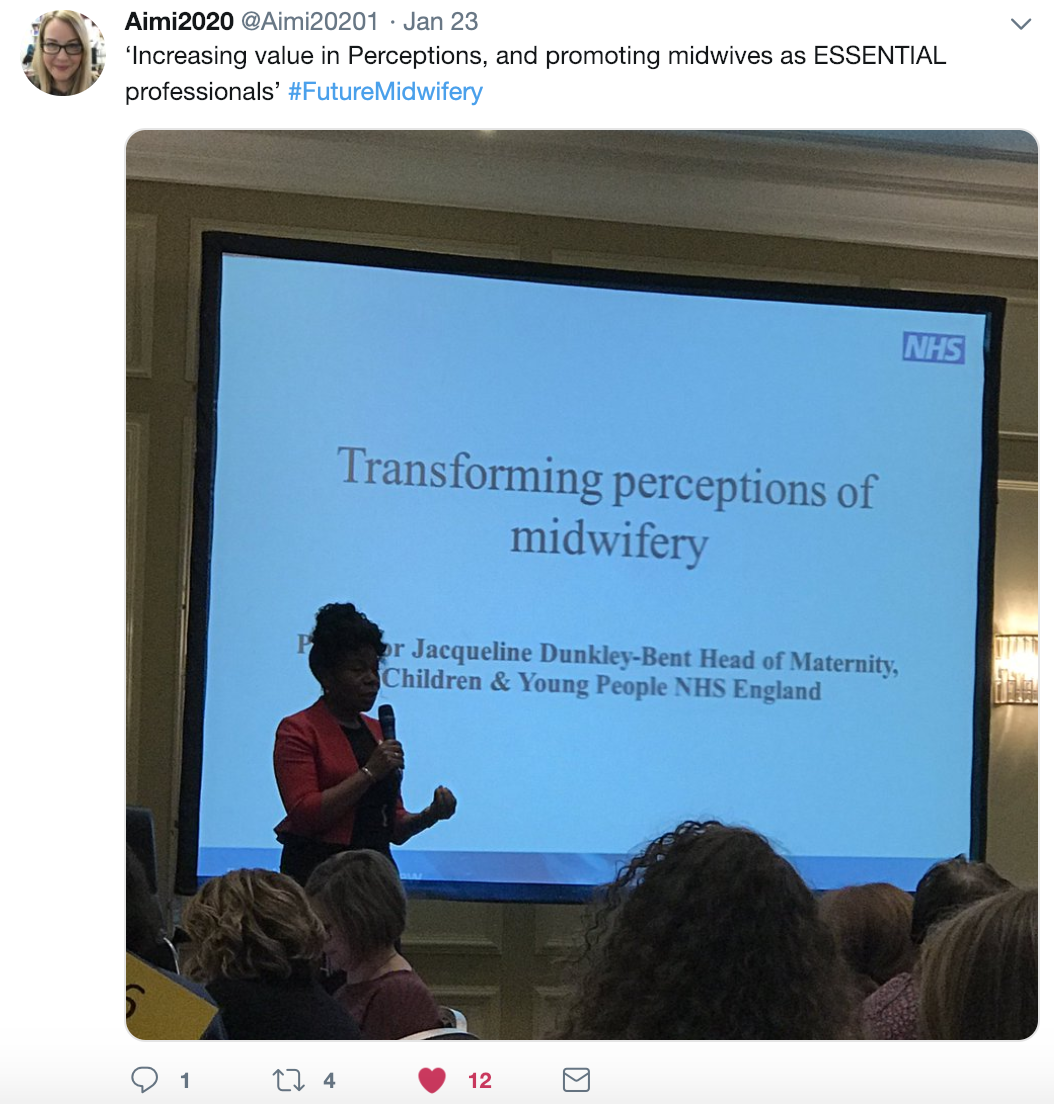









Andrea Sutcliffe, new Chief Executive of the Nursing and Midwifery Council attended and helped judge the films.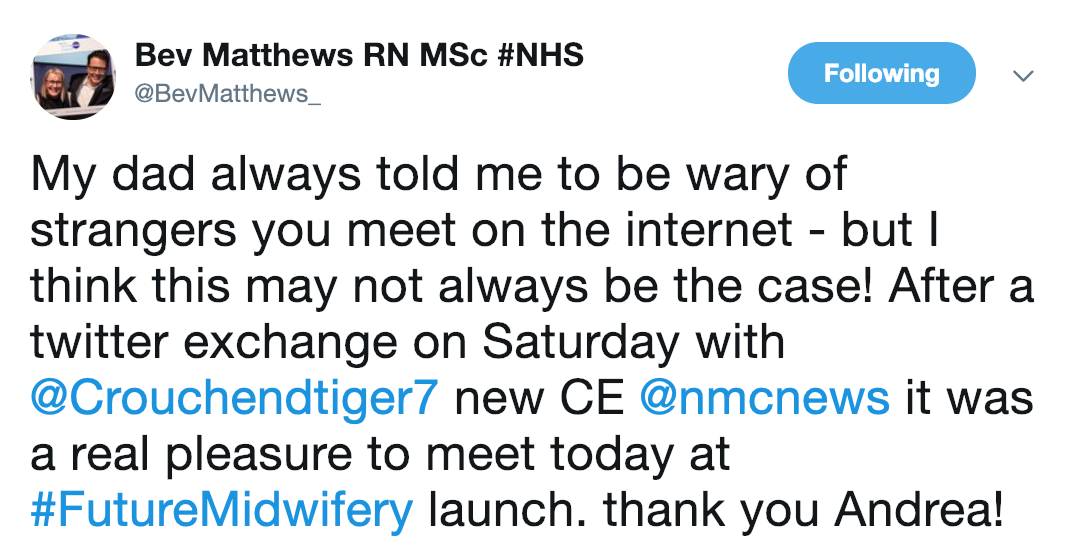
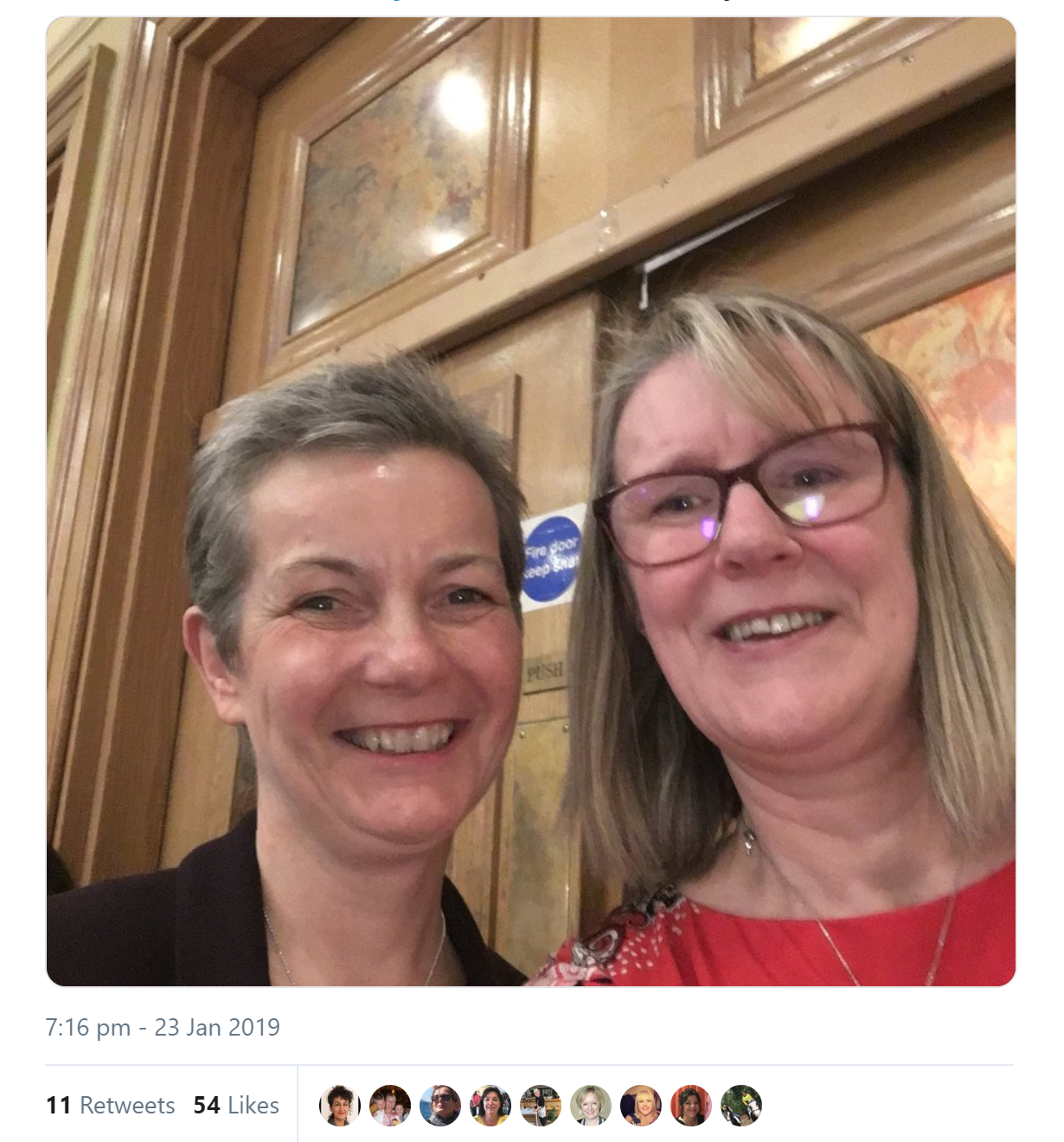


Brilliant sketchnotes captured the day.
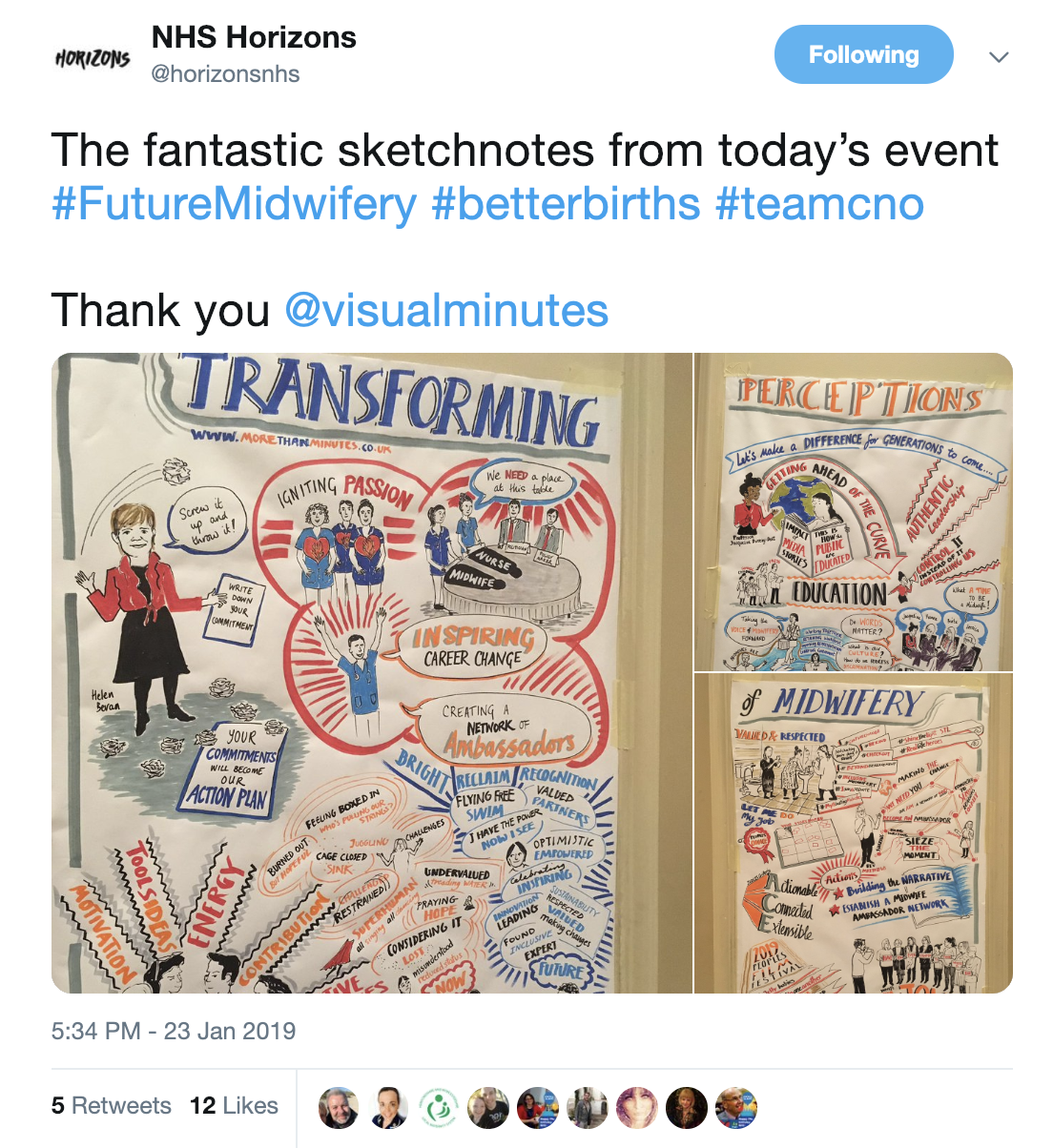
#Project A
We're looking forward to the #ProjectA collaborative on Falls on Monday 28 January. If you're planning on attending please bring along any posters, reports etc that may be helpful to others. If you're not coming, follow along on Twitter on Monday!
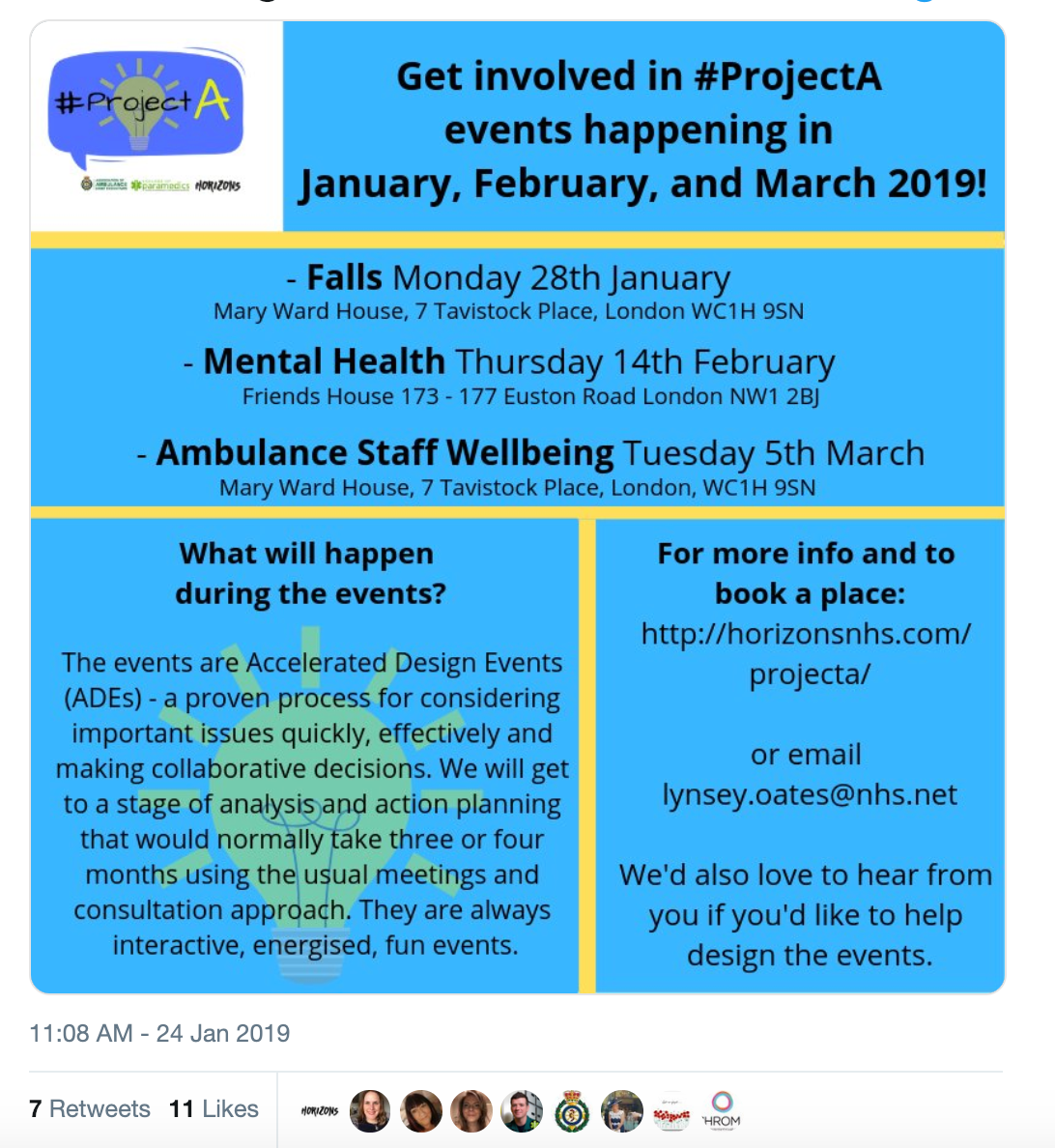
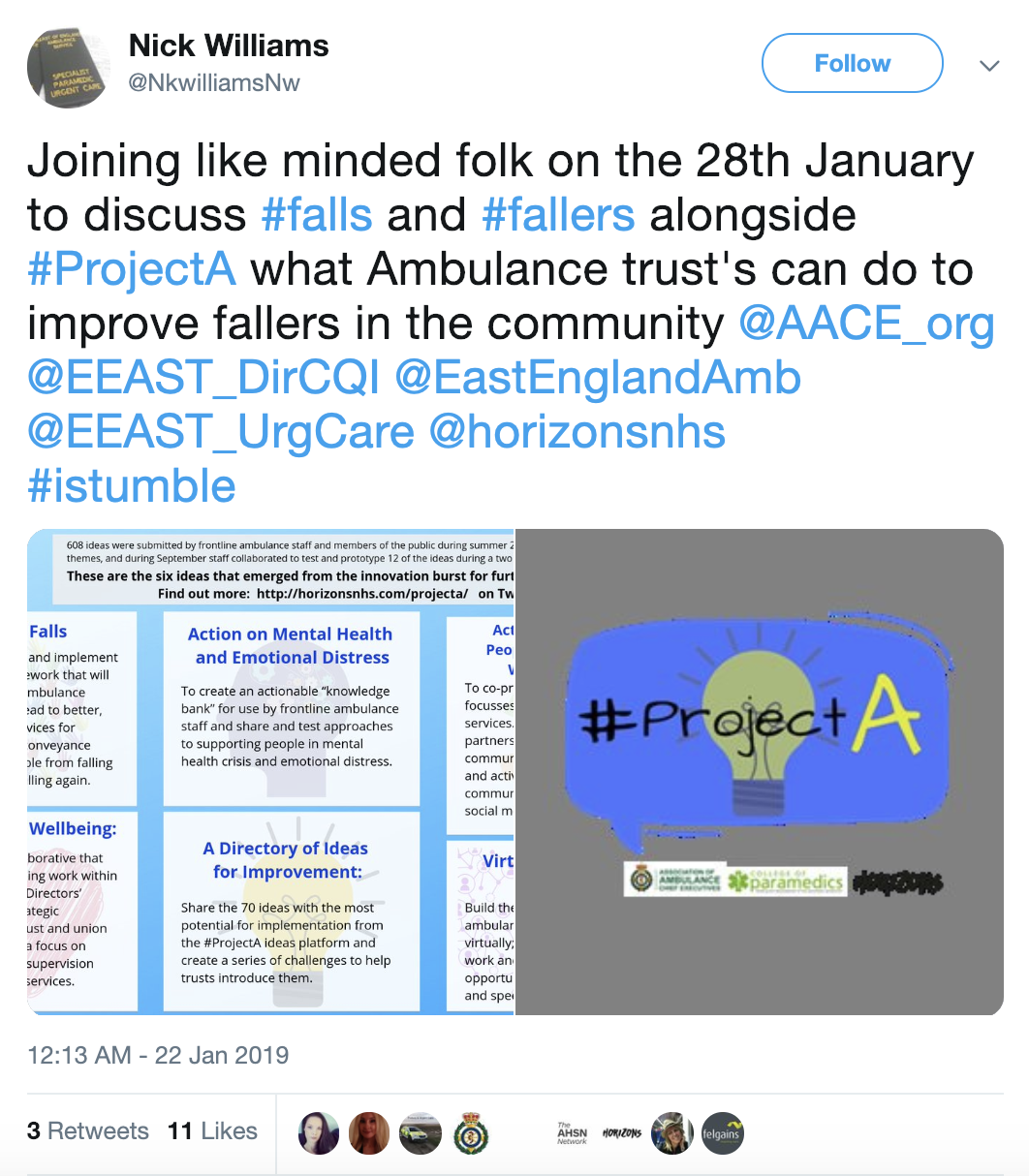
Frontline paramedics have been getting involved with the falls event planning calls, embracing new technology to collaborate!

How frontline staff cope with trauma - if you're interested in this topic please do get involved with our ambulance staff wellbeing workshop on 5 March.
We launched the #ProjectA Directory of Good Ideas last week, please keep contributing your awesome ideas to improve our ambulance service!


We're pleased to see that people are finding the Ideas Directory useful.
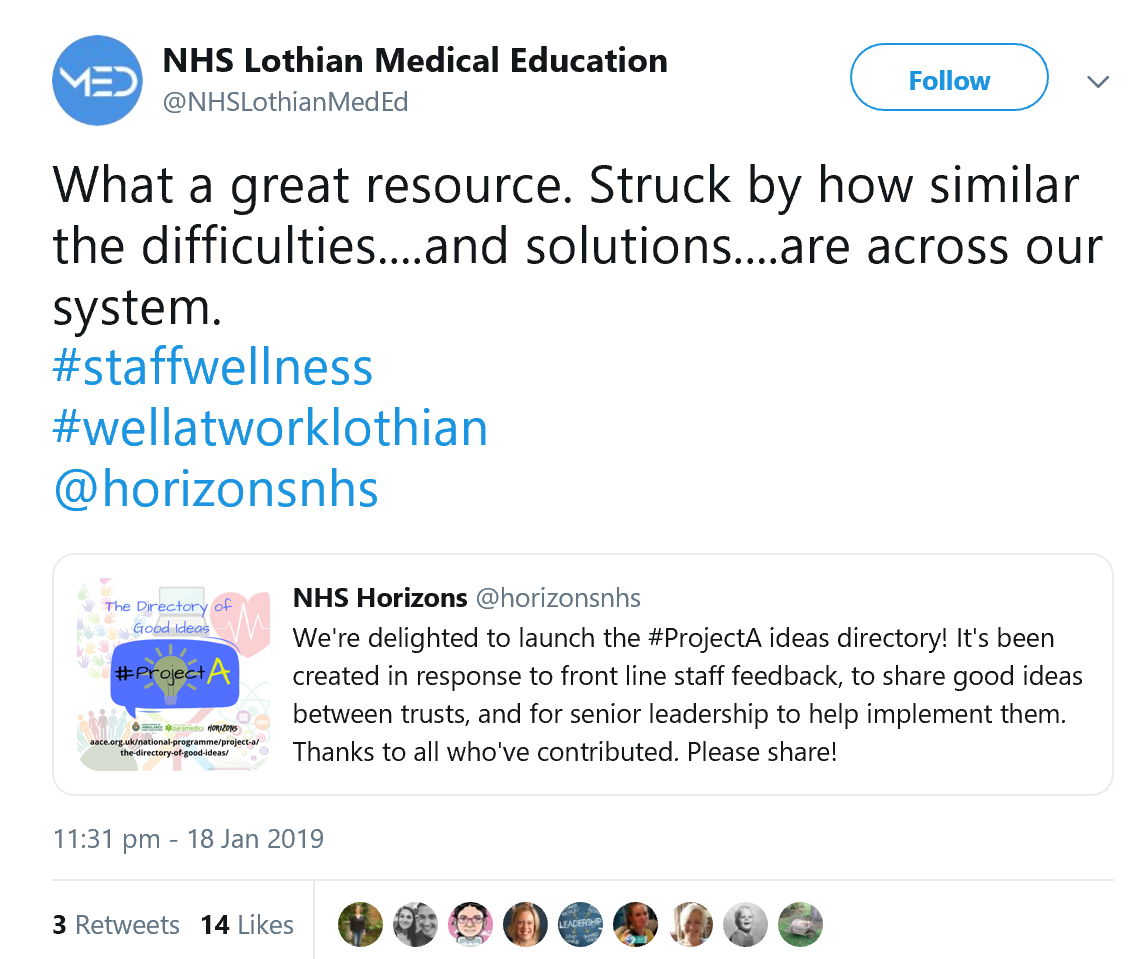
#ProjectA activist Rhian Monteith's project is included in this Dr Foster report about high intensity users in A&E.


Nursing Now England
Our next Nursing Now England event is for learning disability nurses; it will be held in Birmingham on 29th Jan. Find out more information.


Our ambassadors have been doing great work in their local communities, visiting schools to chat with young people about the opportunities available in a nursing career, as part of the January 30 Day Challenge. Check out what they've been up to and get inspired! Download a resource pack.




Don't wait for journalists to call - read Nursing Times editor Steve Ford's advice on influencing the media by engaging with journalists.
It doesn't matter when and where, our nurses are always doing their best to make patients' experience better!
"Conversation will involve a great deal more nuanced and implied context than simply the words." Read the blog.
It's almost the end of Red January, shall we carry on our spirit of getting more exercise, and maybe create a nurse shuffle?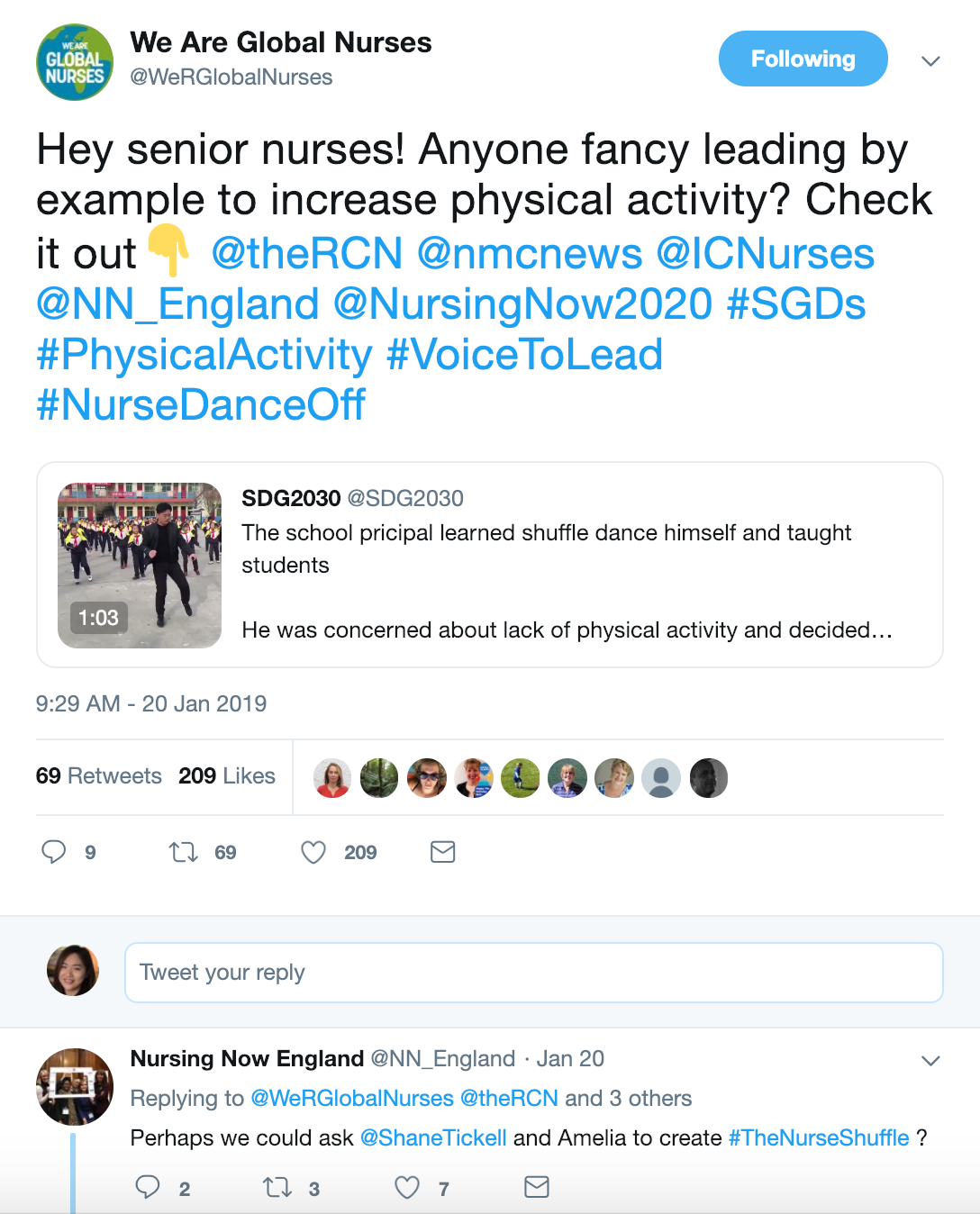
Wellbeing
An interesting dimension for the "what matters to me?" personalised healthcare movement. Newly published research suggests that asking patients to draw their illness & discussing it with them can lead to better, more personalised care. Read more.

Depression doesn't know what day it is. Some great tips for staying well at work:


The perils of chronic overthinking.

For anyone who might be feeling low - things will feel better.


What are your mental health superpowers?
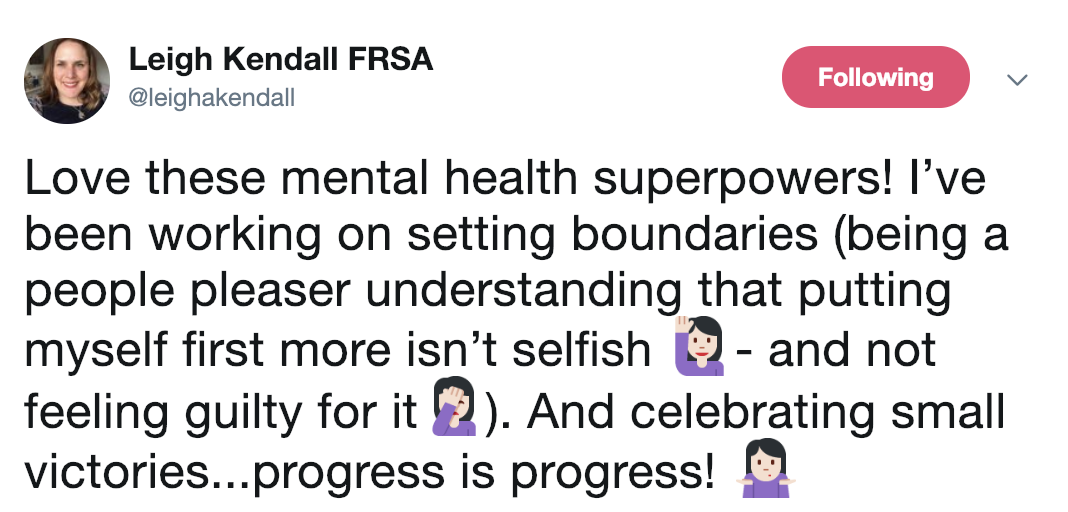
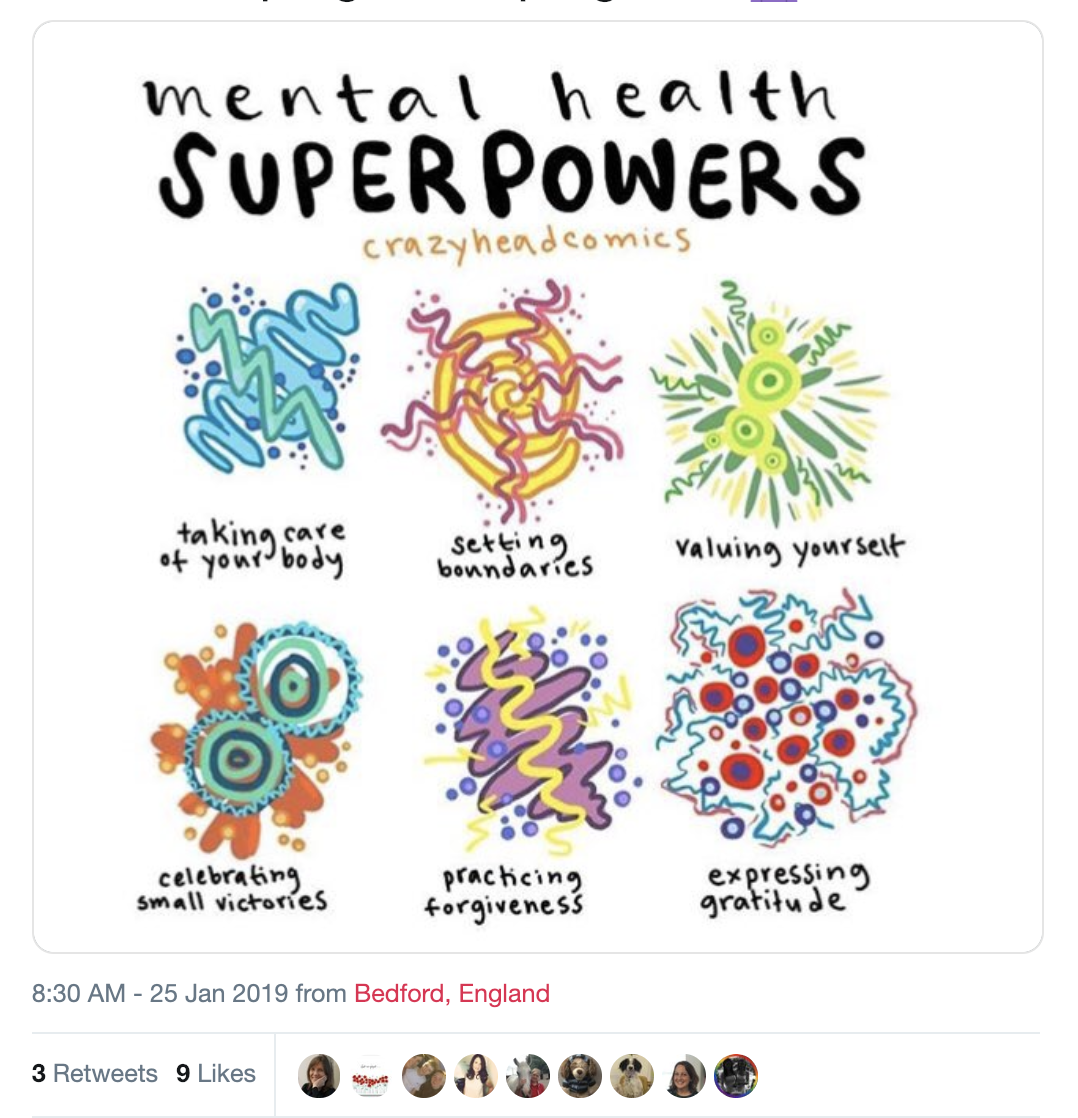
Be kind. Be hopeful.
Creativity and artistic pursuits bring tangible health benefits, another good reason to get sketchnoting! Read the article.
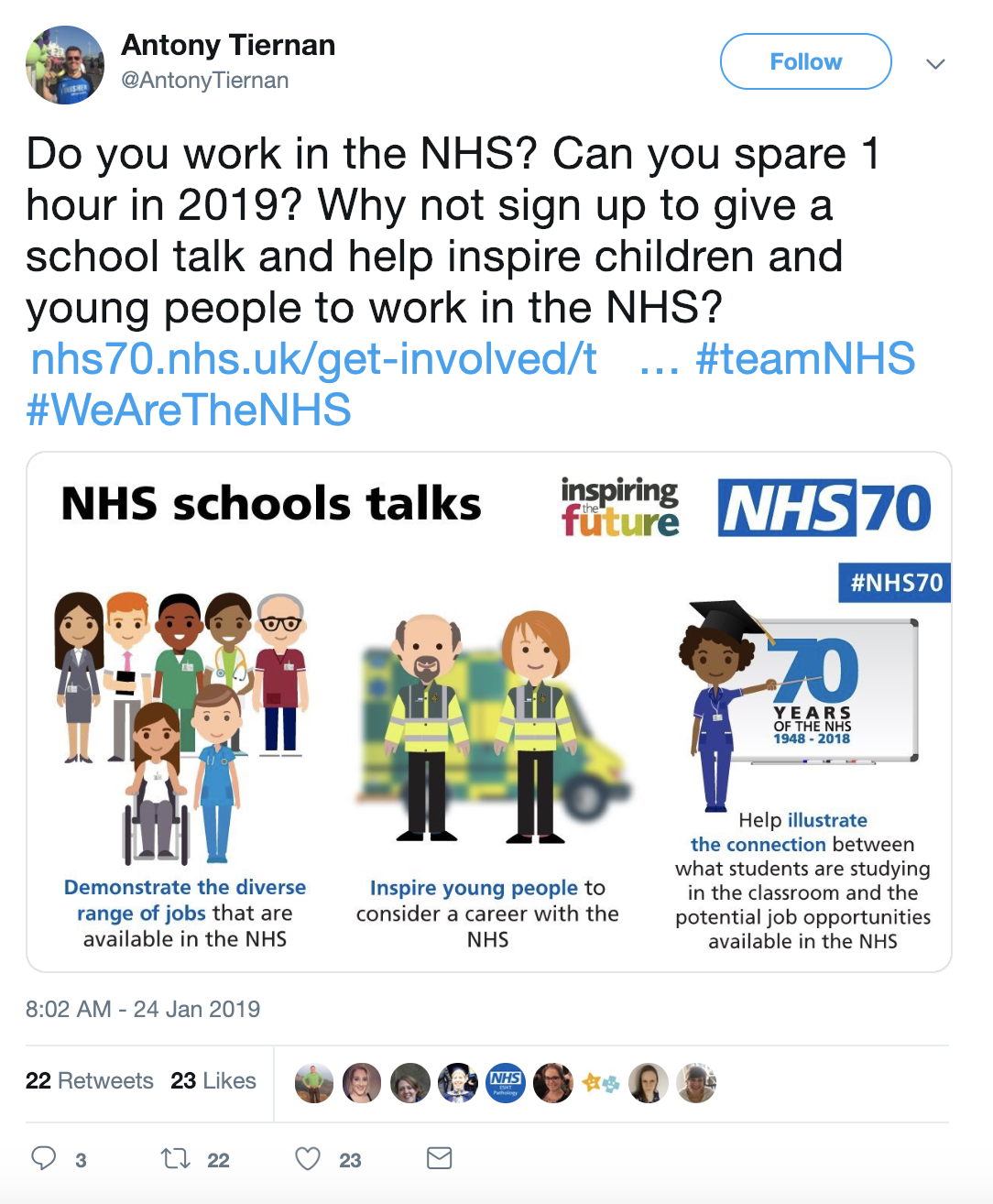
Change
One comic from @Dilbert_Daily made Helen laugh. Some people think that being a change agent is all about keeping others optimistic and motivated during change. Yes, being a positive person is part of the role, but it's also about being a realist and saying it as it is, when it is happening.
Whatever age or career stage we are at, we should all see ourselves as apprentices to the future we want to be part of creating. Here is a great sketchnote for everyone who has a humble heart for the future.
When it comes to getting other people to accept your recommendations or to support your change project, target your message to the specific audience. Read the article.
The change curve really does happen and this paper sets out the reasons. More evidence we should focus on emotional and psychological aspects of change, not just process/structure. Read the article.
"Designers should not make things work in the way they want it to work, but rather in the way human beings work." Read the article.
Things that pundits like to say that aren't true... There's plenty of pundits around our health and care sector. Helen's happy that she is a practitioner rather than a pundit, and she gets to work every day with the complexity of change. Read the article.
Sometimes things are about perspective!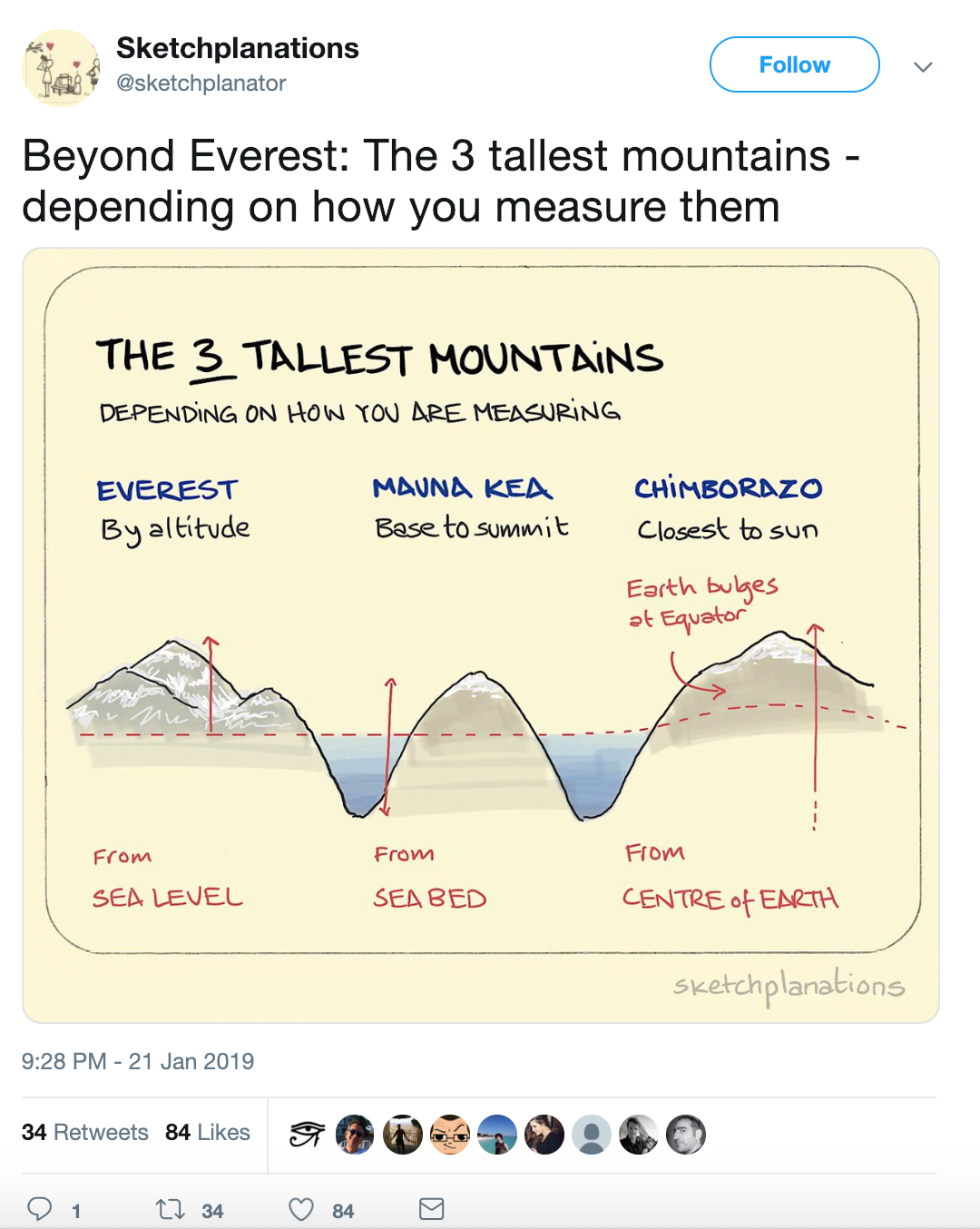
Communication and Engagement
Here is a beautiful sketchnote by @scriberian, providing six tips for effective communication.
A special edition of Healthcare Quarterly on patient engagement. There's some outstanding content, mostly from Canada, which does some of the best patient/staff co-production work in the world. There's no paywall - it's all free!

Social Media
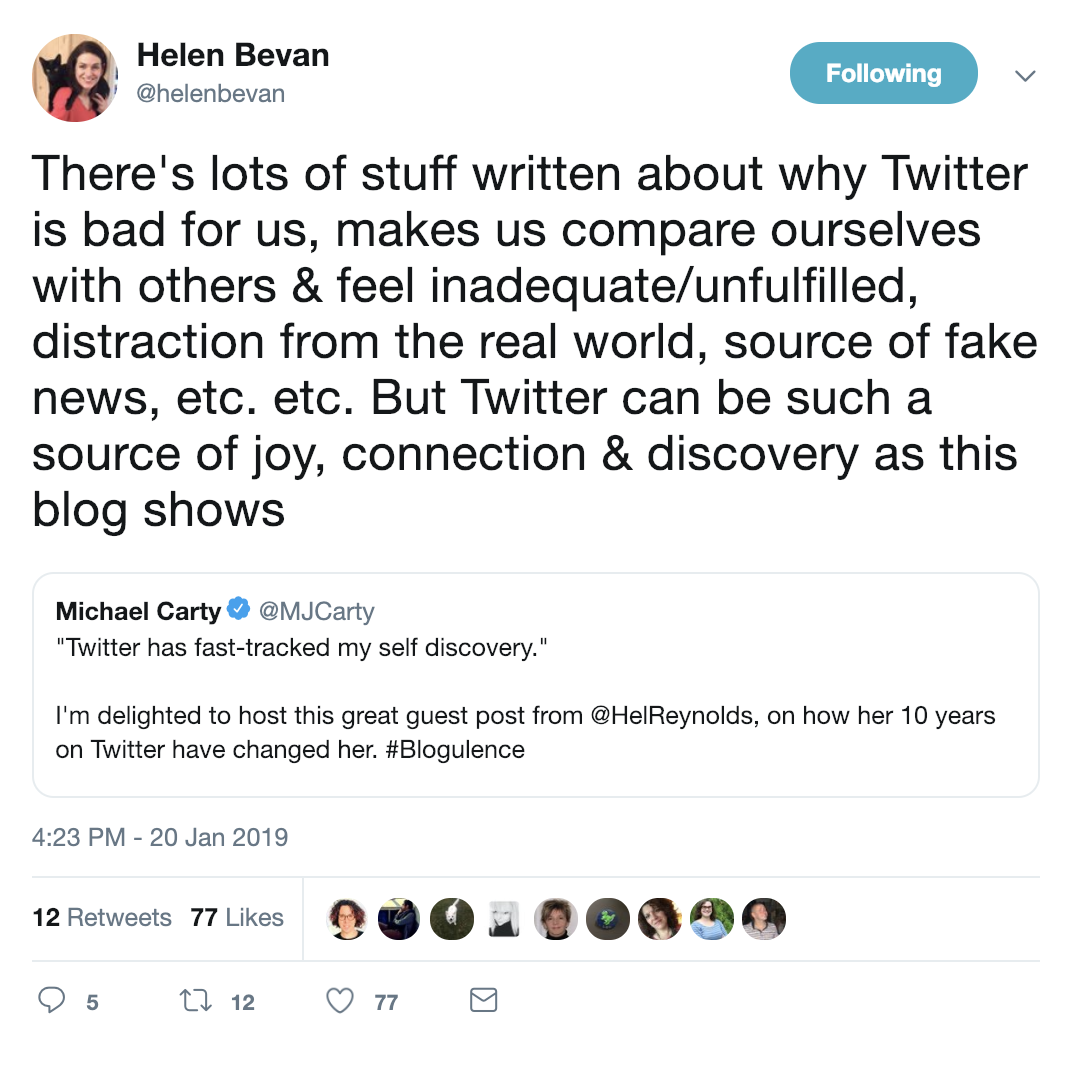
About 10% of CEOs in major companies are personally engaged in social media It's about the same % in health & care. Here's why EVERY CEO should be active on social media, click this link to read.
There's a new digital divide emerging. People with more social connectivity are becoming better informed and have more signalling power, while those outside & with fewer ties & connections may be left behind. Click here to read more.
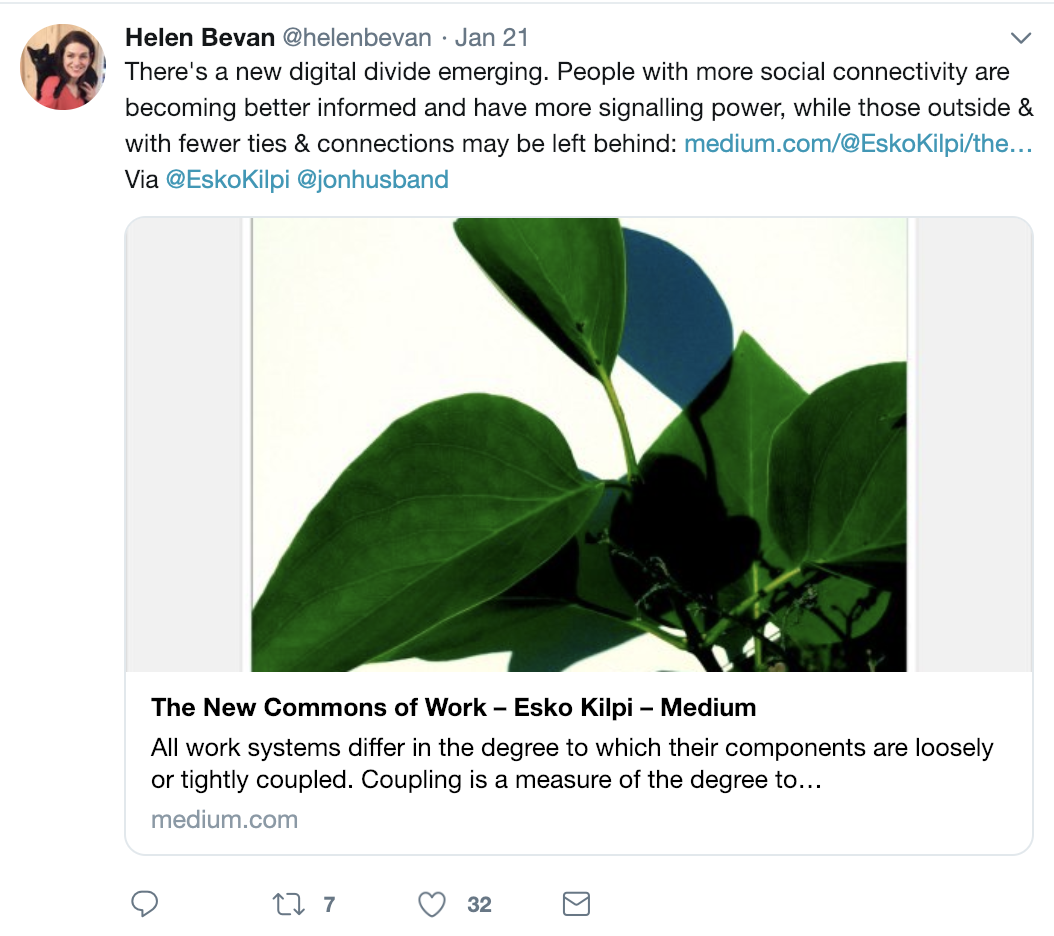
Leadership and Teams

We are moving from an era of conventional leadership thinking (where we seek to resolve problems) to postconventional leadership thinking (where we seek to manage the tensions in paradoxes that are unresolvable). This article is an example.
Here is a top ten list of leadership requirements for the future. These skills won't gain traction unless they're supported/enabled by a leadership mindset to help these new behaviours become normative behaviors. The most important factor is trust.
Many futurists are anti-management, predicting boss-free organisations for the future. This essay shows us that in a rapidly changing world, where the nature of power is shifting, managers are more important than ever. Click here to read.
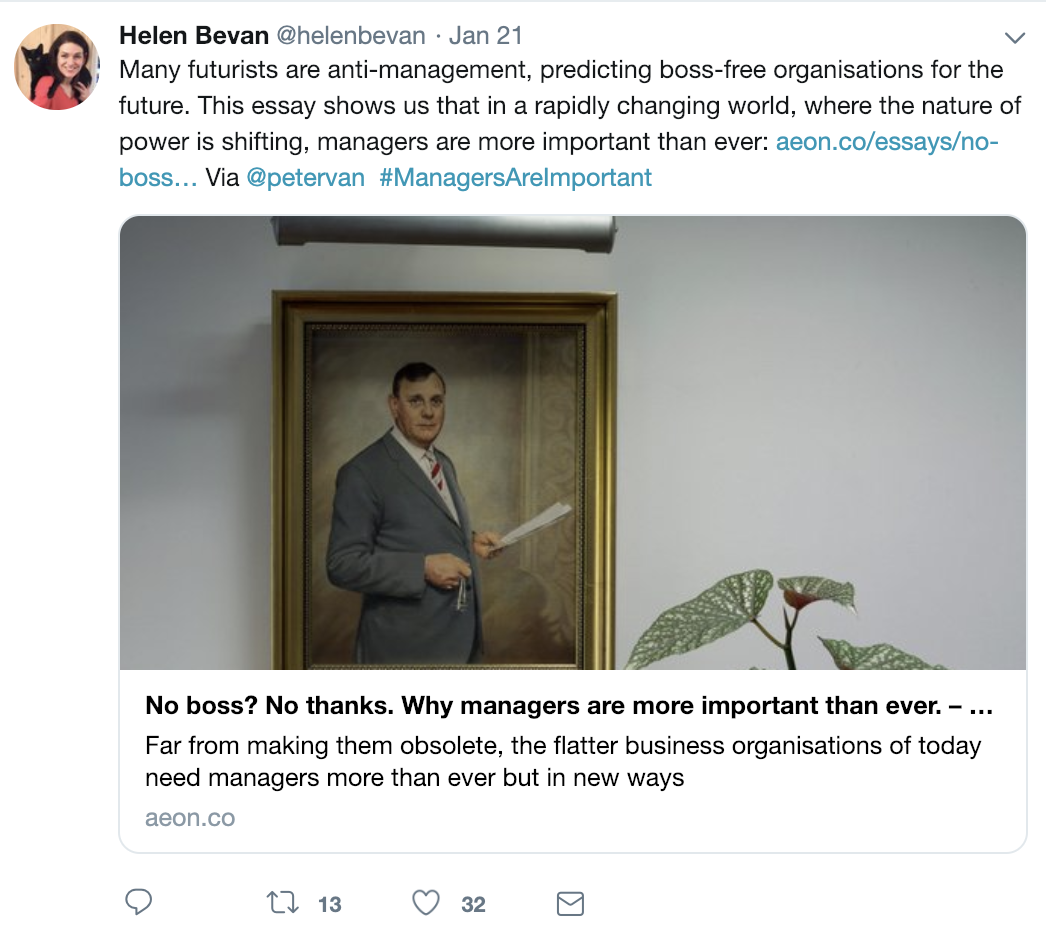
It's a myth (and a stereotype) that people who are highly self-confident have more successful careers. This article suggests if your confidence is low (not extremely low) you stand a better chance of succeeding than if you have high self-confidence. Read more.
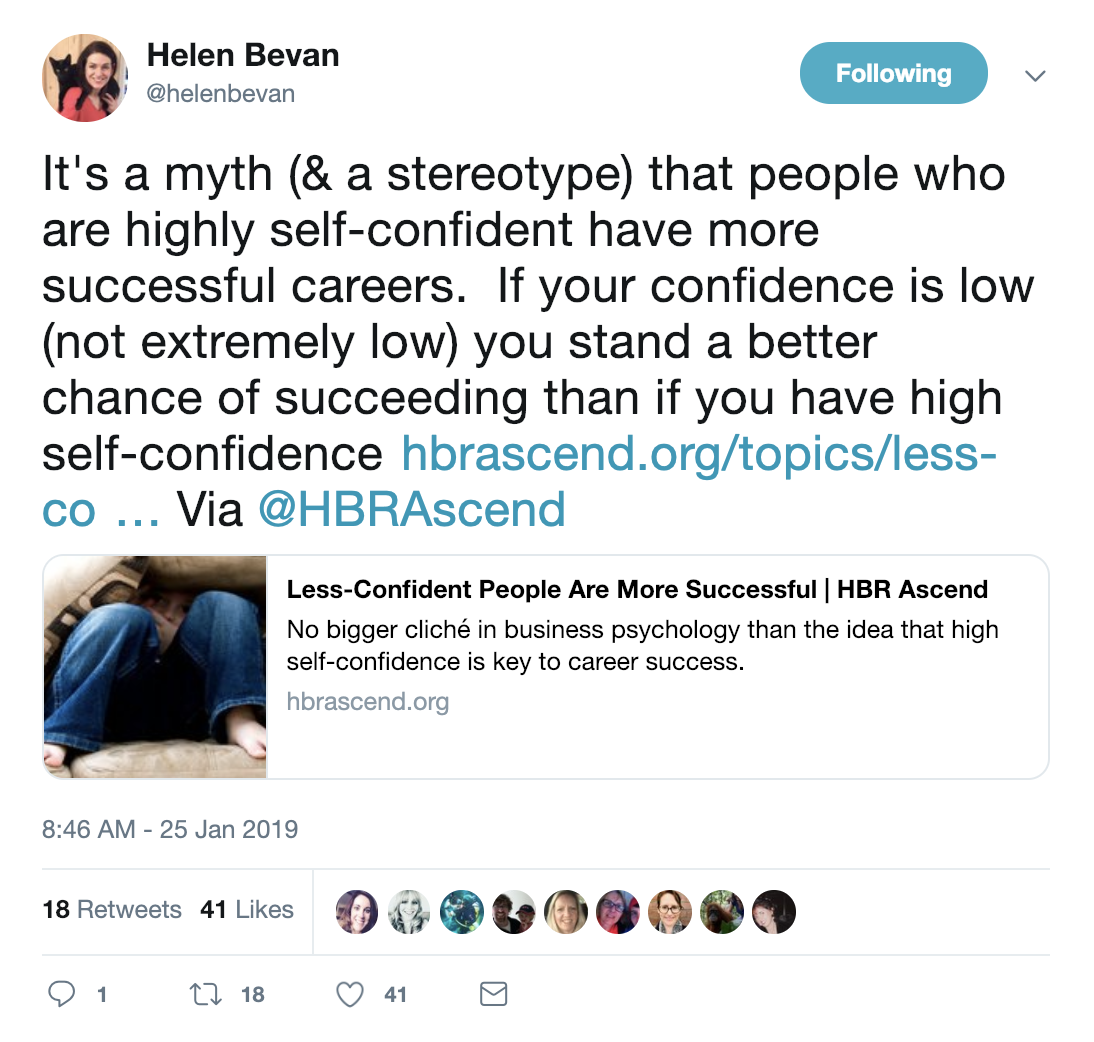
"Remember, the people in your team are humans, not machines." Read the post.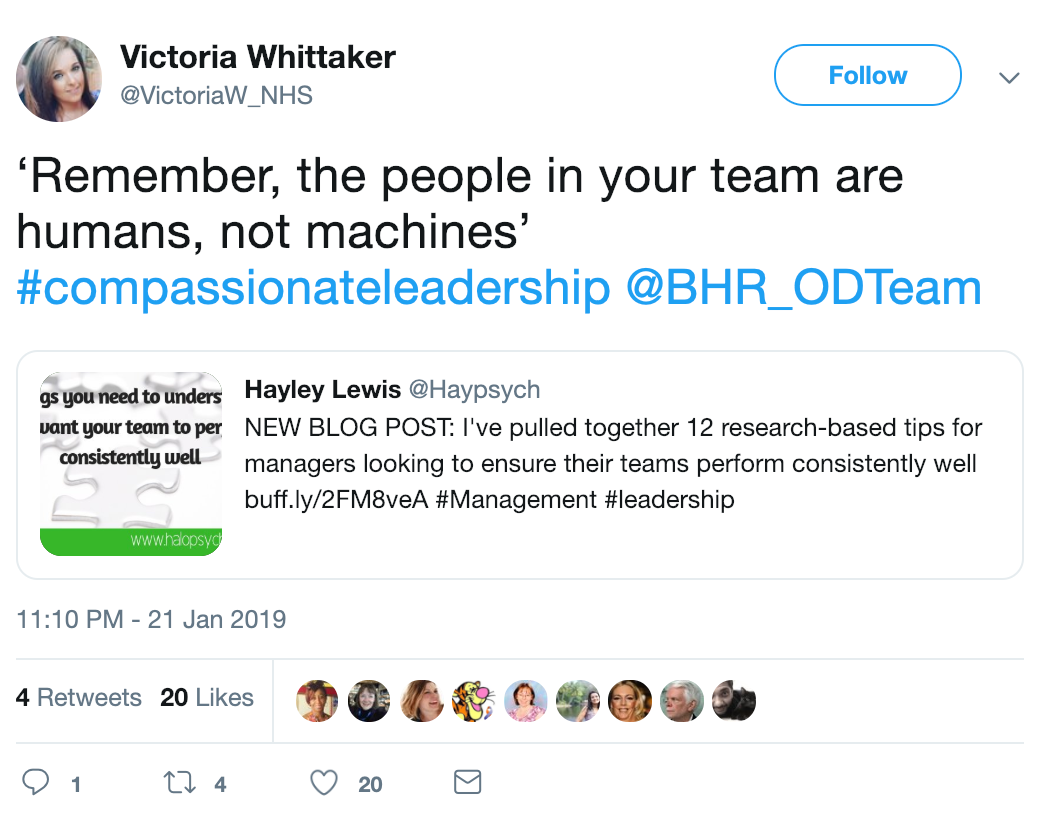
An interesting activity for teams to undertake to build their skills of rapport. It's called the coffee/corner shop challenge and involves team members getting points for building a genuine connection with the person who serves them. Find out more.
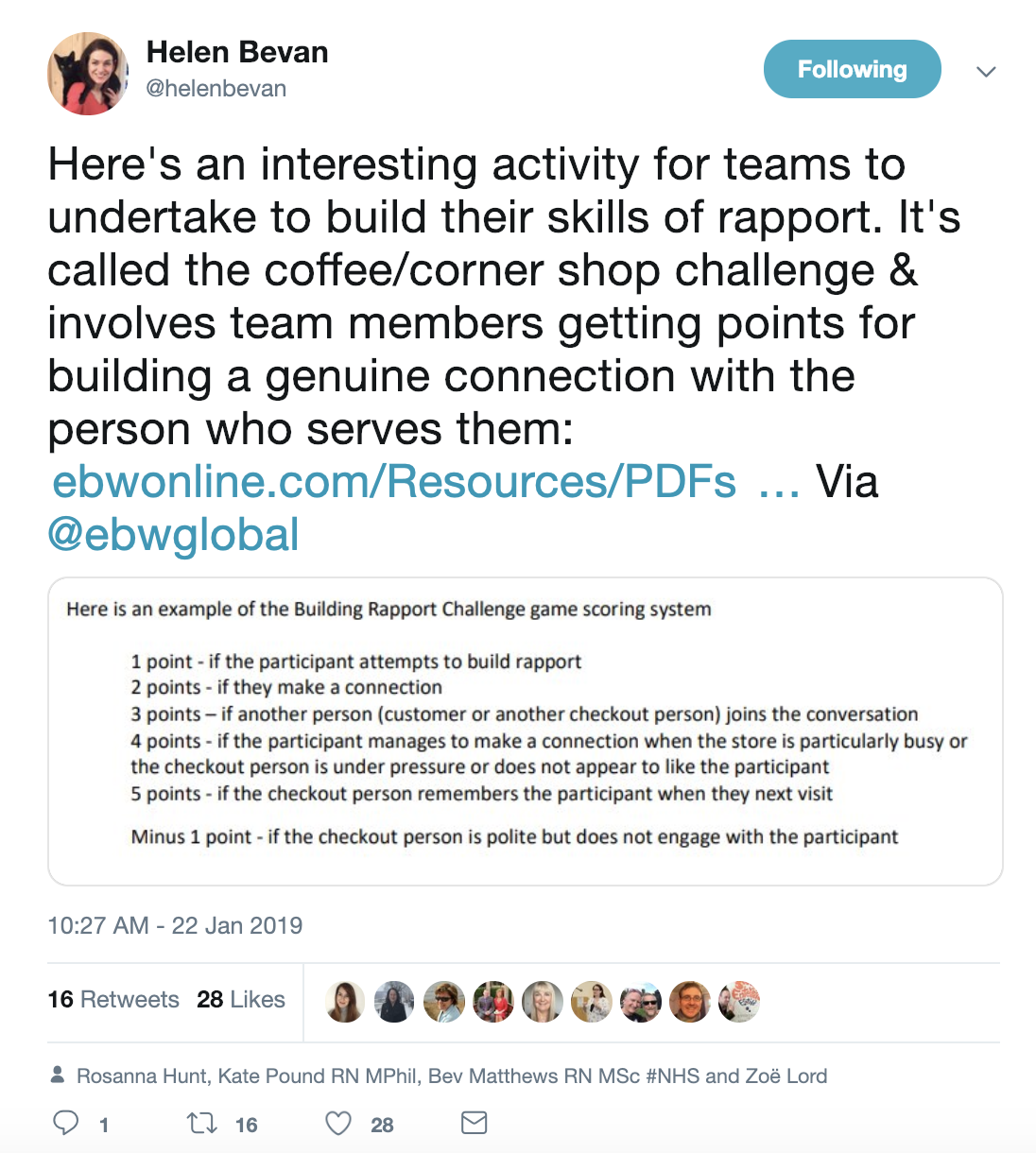
An analogy of the rigid timetables of rail networks vs the relative flow of the roads, with the need for flexibility in leadership and programme planning. Read the post.
This is a big problem in many health and care organisations today.

"Although people loathe meetings, they loathe being excluded even more". After at least 80% of meetings, any decisions taken will be in line with the HIPPO or “highest-paid person’s opinion”. Read this article on how to be less tortured by meetings.
Resources
The team is learning greatly from the @Design4AHS team of Alberta, Canada about how to adapt "sprint" methodology from human-centred design to a health & care context. Done well, it's a powerful way to accelerate outcomes. We're running a workshop together on March 26.
Are you a facilitator? Do you want to be one? Here's a super free downloadable toolkit of tools & techniques for facilitators. Click here to see the tools!

Choosing Wisely Canada has just published its starter kit for hospitals wanting to reduce unnecessary tests and treatments, click this link to read.
Join an open conversation event on equalities on 27 February in Edinburgh.







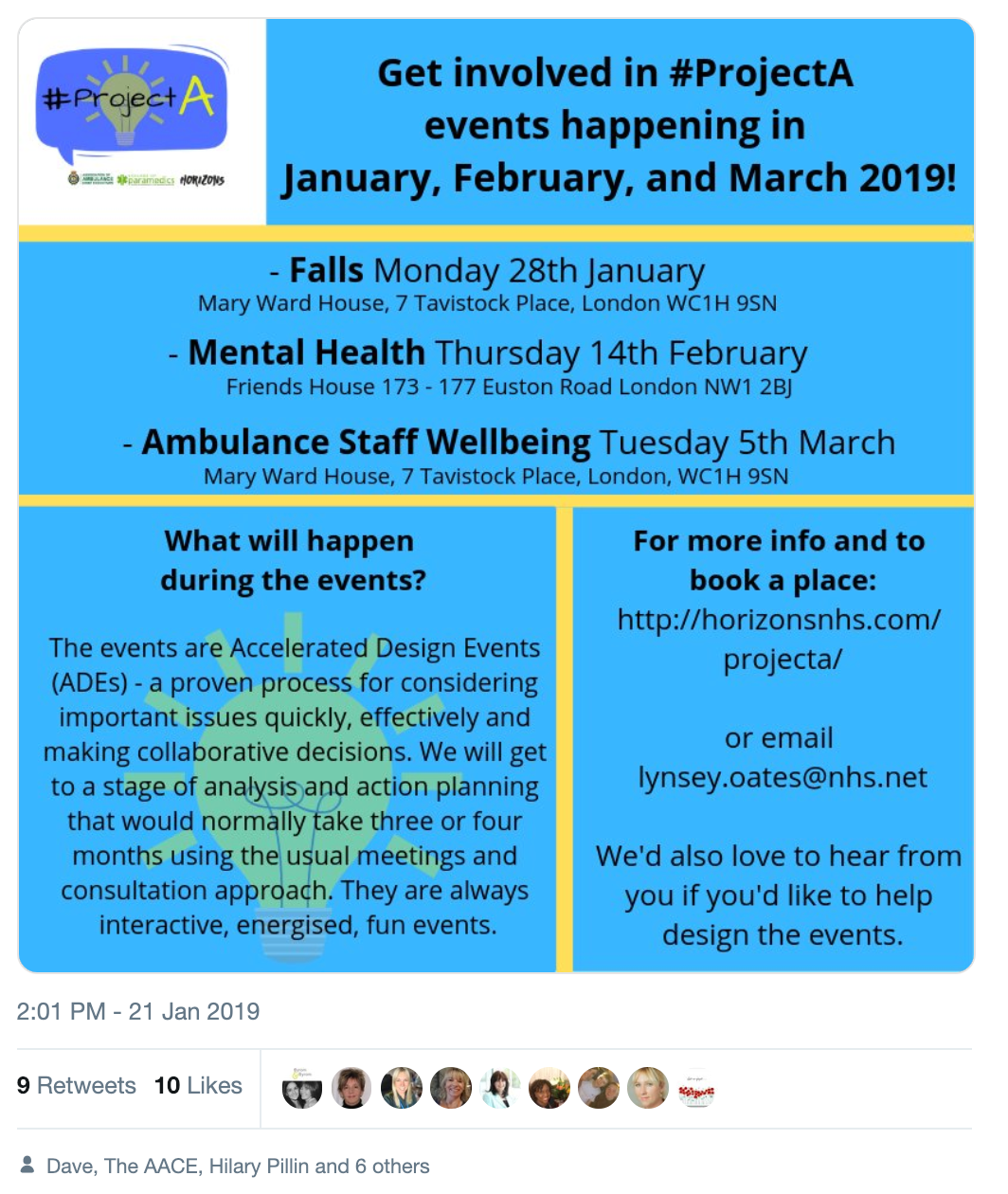




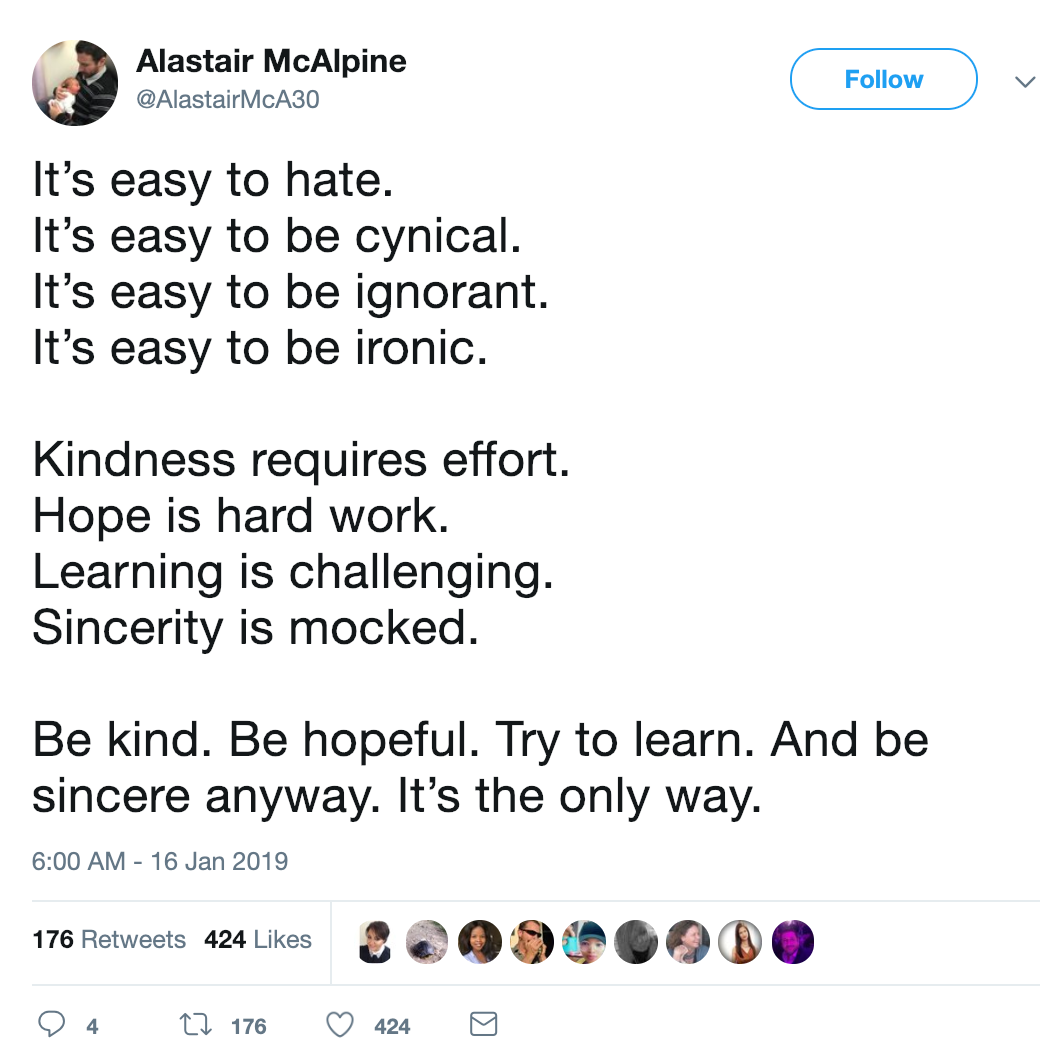








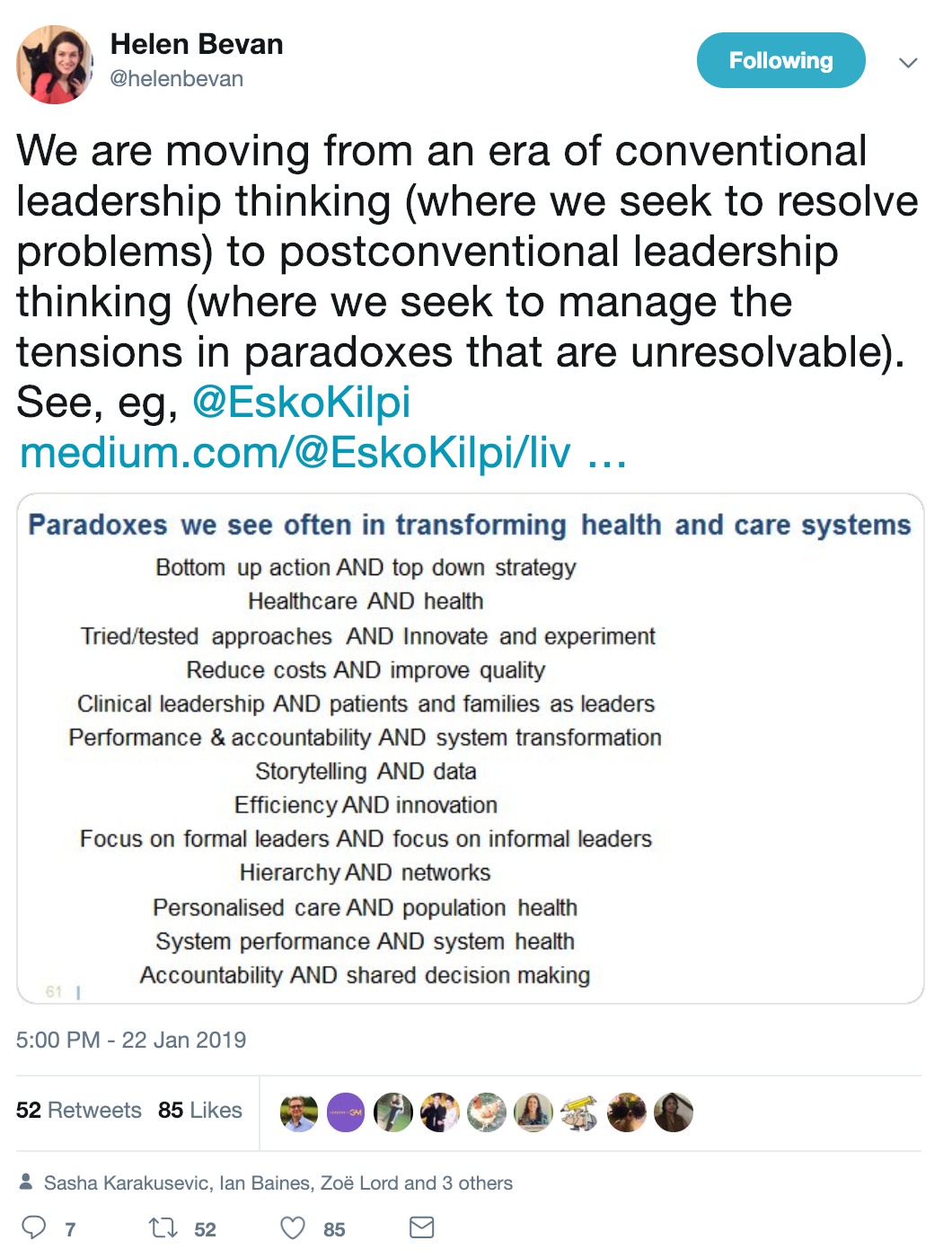




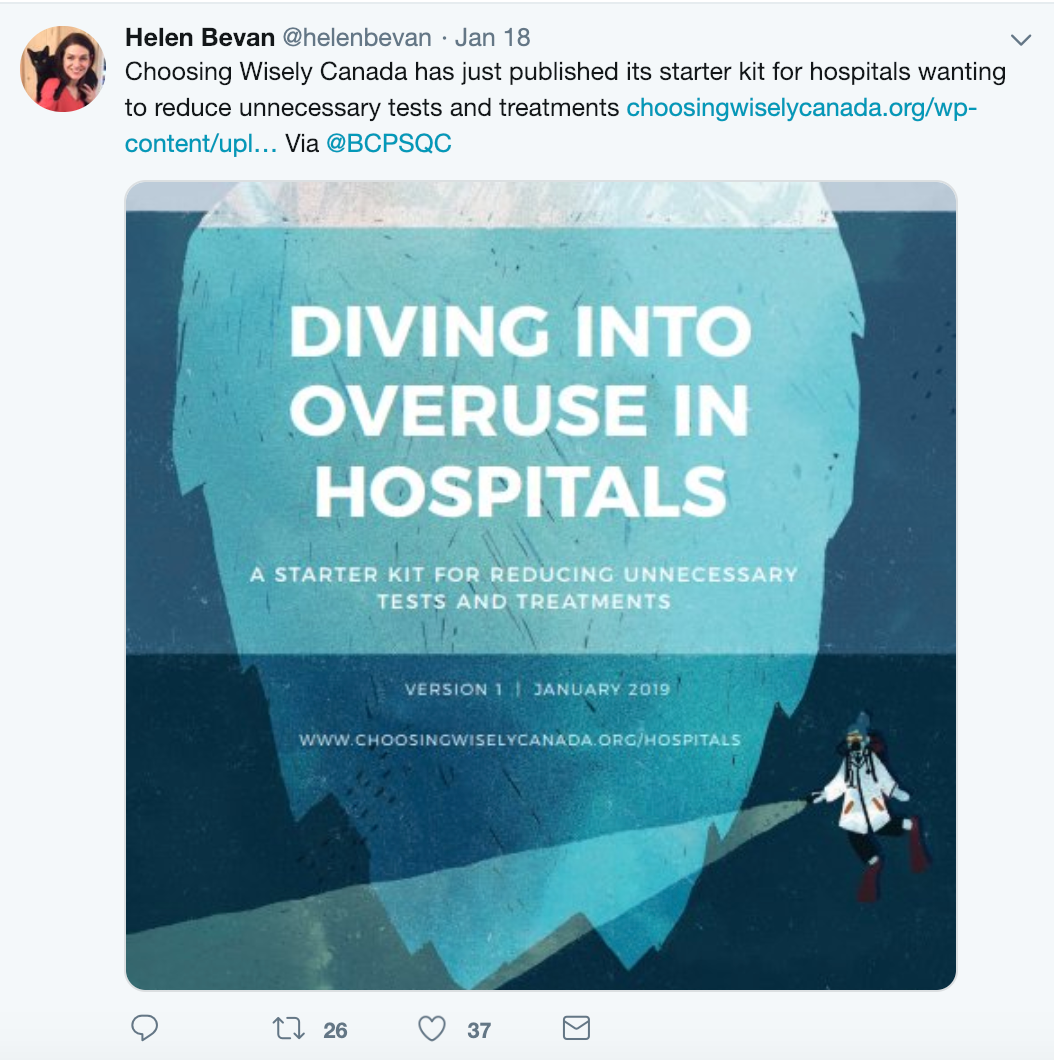
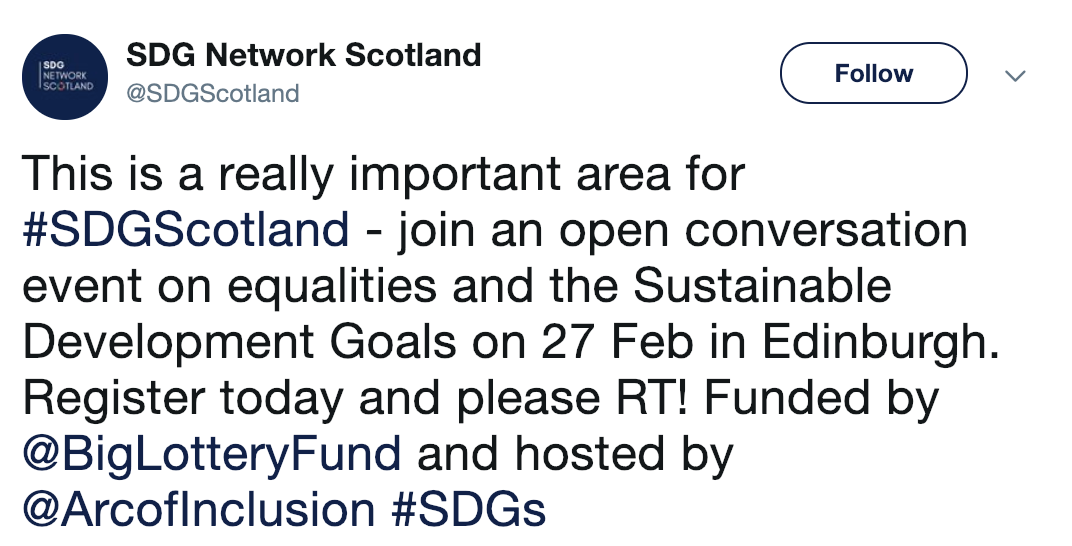
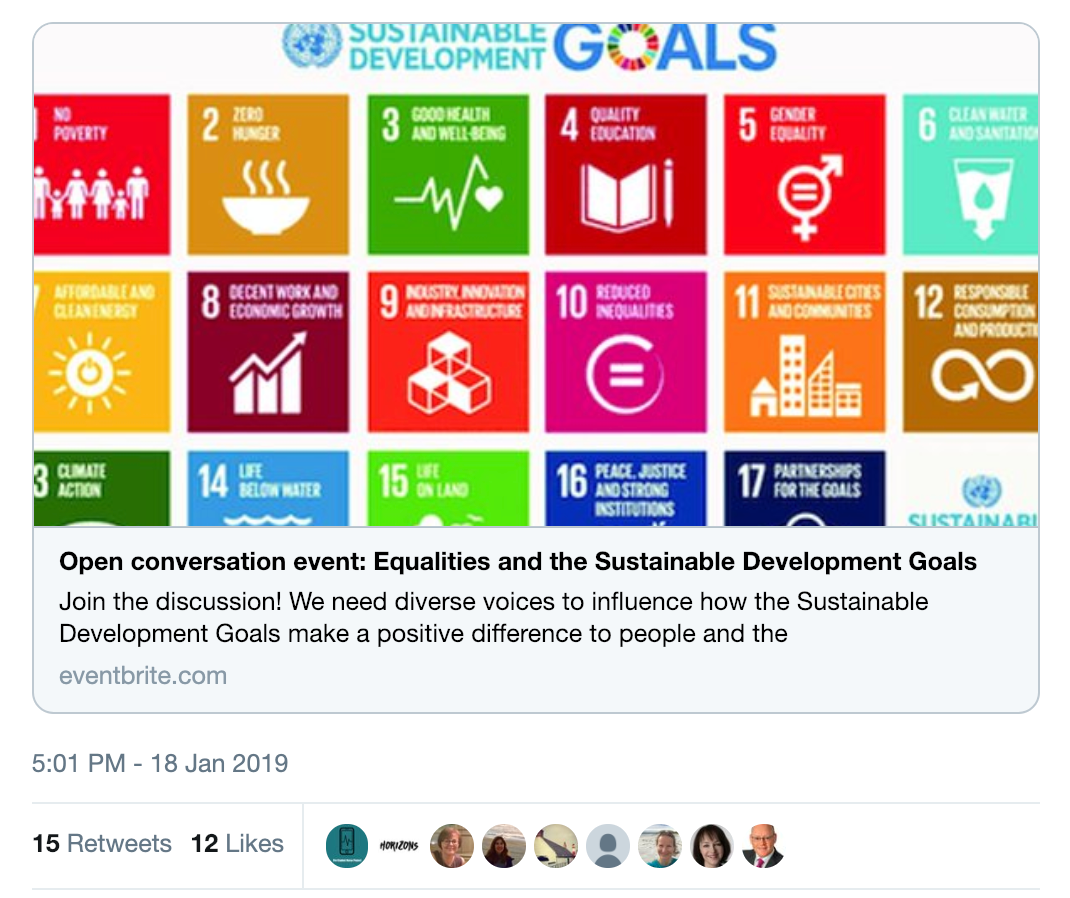

/Passle/5a5c5fb12a1ea2042466f05f/MediaLibrary/Images/6168334917af5b10f4bf1d30/2022-04-14-15-27-52-040-62583d78f636e9115805b2d5.png)
/Passle/5a5c5fb12a1ea2042466f05f/MediaLibrary/Images/6168334917af5b10f4bf1d30/2022-08-05-09-59-36-465-62ecea08f636e906acfed639.jpg)
/Passle/5a5c5fb12a1ea2042466f05f/MediaLibrary/Images/6168334917af5b10f4bf1d30/2022-07-28-14-57-17-405-62e2a3cdf636e9180c9835cb.png)
/Passle/5a5c5fb12a1ea2042466f05f/MediaLibrary/Images/6168334917af5b10f4bf1d30/2022-07-20-10-16-56-533-62d7d618f636ea07987f6668.png)
/Passle/5a5c5fb12a1ea2042466f05f/MediaLibrary/Images/6168334917af5b10f4bf1d30/2022-07-15-09-55-32-858-62d13994f636ea1398e71aa9.jpg)